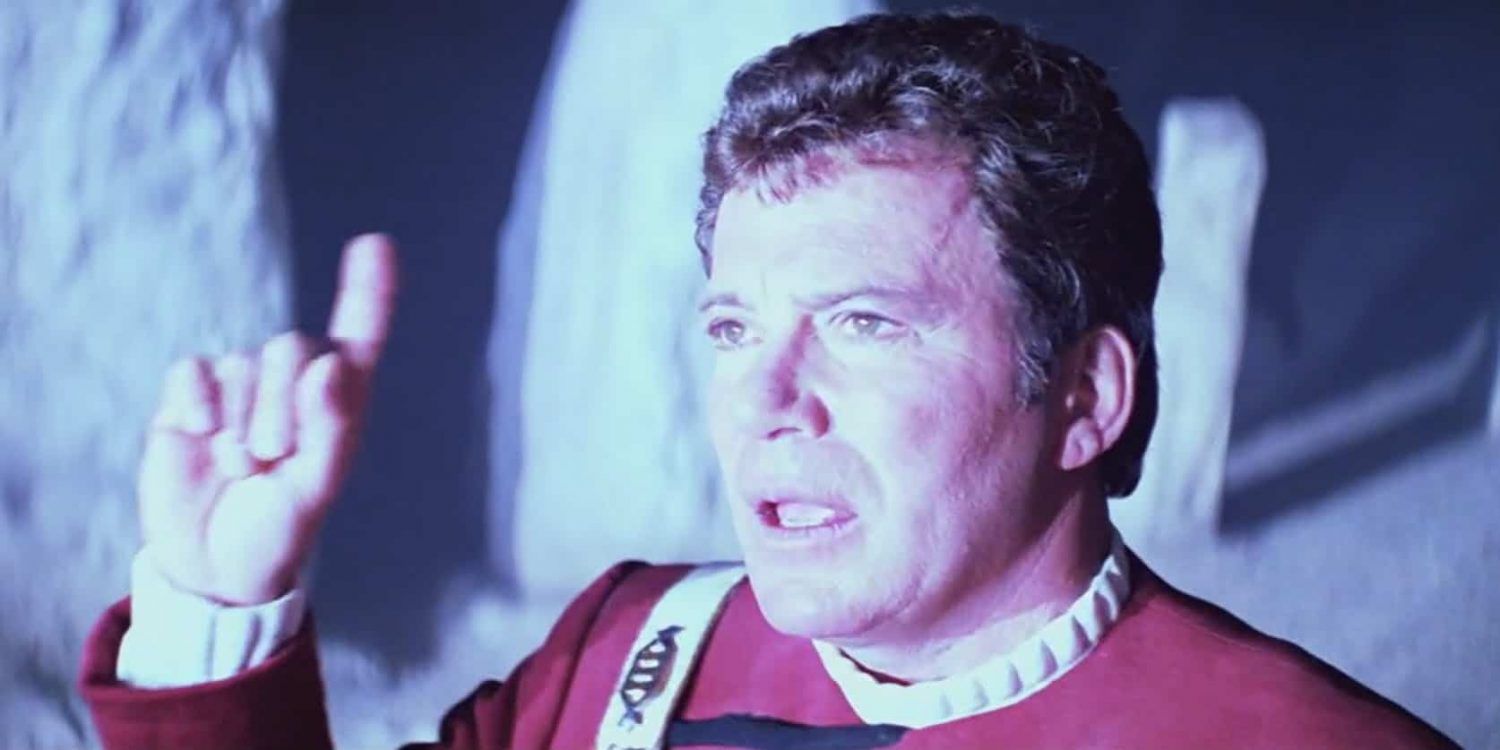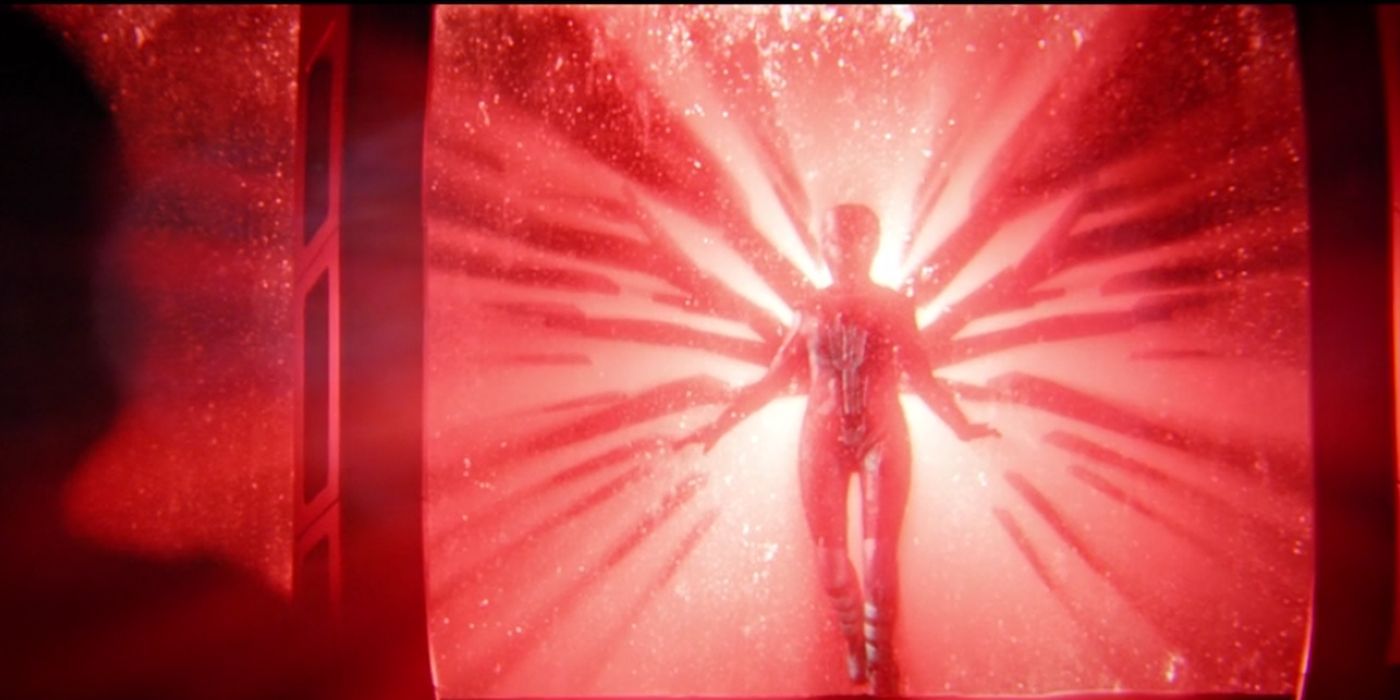The Star Trek franchise offers a glimpse at humanity's future, but what role does religion play in the fictional universe of tomorrow? One of the most fascinating qualities of science fiction is its ability to predict the path of mankind in the decades or centuries to come and Star Trek does this better than most. Throughout a host of movies and TV shows, Star Trek has provided a futuristic commentary on politics, science and community values, while also touching upon the more serious social issues of race and gender. Gene Roddenberry was meticulous in his imagining of a fictional future, with some elements bordering on utopian in nature.
The subject of religion is frequently explored in science fiction fare, often as the antithesis of progress. Even now, the struggle between science and faith is centuries old and it's only natural that science-based stories would present its own side as coming out on top. As a result, many fictional future societies afford a reduced role to the religions of the present. Some even show the concept of a God to have been abandoned altogether in the face of rapid scientific progress. In the case of Star Trek, however, religion's place in society has evolved throughout the franchise.
When Gene Roddenberry began developing the Star Trek concept, he envisioned an Earth in peaceful harmony, with war and inter-species conflict a thing of the past. A key part of Roddenberry's world was that humanity had also mostly outgrown the need for religion, with Star Trek writer and producer Ronald D. Moore describing this belief as a "core tenet" of Roddenberry's vision. A lack of religion may have been a starting point for the original Star Trek, but this hasn't necessarily been the reality moving forward. Not every writer and producer working on Star Trek shared Roddenberry's grim spiritual forecast and the outright, explicit rejection of religion would perhaps not have played well with a 1960s audience (or, indeed, a modern one).
For this reason, the original Star Trek series mostly glosses over the subject of religion. There is little to suggest that any major religious practices remain widespread but, equally, there is no outright rejection of the concept. Star Trek: The Original Series also uses a common story trope where the Enterprise crew take down a false God - usually an alien with great power proclaiming his own holiness. This approach adheres to Roddenberry's original idea, but also refrains from potentially offensive absolutes. There are, however, a few moments that seem to contradict the general lack of religion in Star Trek, such as when Kirk proclaims to Apollo, "we have no need for Gods, we find the one quite adequate," suggesting that some kind of monotheistic following exists in the future. Certain religious traditions such as weddings and Christmas also remain, although the religious aspect of these ceremonies might've eroded over time, as has occurred in the real world.
In Star Trek II: The Wrath of Khan, McCoy somewhat contradicts Kirk's earlier statement by referring to the Bible's Genesis as a "myth." This is more in keeping with Roddenberry's future, in which religion has transcended into a fable rather than a following but, once again, Star Trek flip-flops on this idea in its fifth big screen outing, the much-maligned The Final Frontier, in which the Enterprise crew become embroiled on a search for God.
As Star Trek evolved into The Next Generation, Roddenberry's non-religious ethic came more to the fore, and Picard presented far more disdain towards spirituality than Kirk, as seen in episodes such as "Who Watches The Watchers." Despite this, there remained a variety of references to Christianity, Hinduism and other faiths that at least prove religion hasn't been forgotten in the Enterprise-D era.
Following Roddenberry's death in 1991, the Star Trek franchise took more liberties in straying from its original remit, and this included the concept of religion. But while Deep Space Nine, Voyager and Discovery dabble in religious themes, they generally follow the example of the original series by neither completely rejecting the concept of faith, nor showing it to be as prevalent as it is in the present day. In this sense, perhaps the best way to describe Star Trek's overall representation of human religion is a development from organized mass gatherings to more personal spiritual beliefs rounded out by lingering traditions and ceremonies.
Star Trek: Picard premieres January 23rd on CBS All Access and on Amazon Prime internationally.


